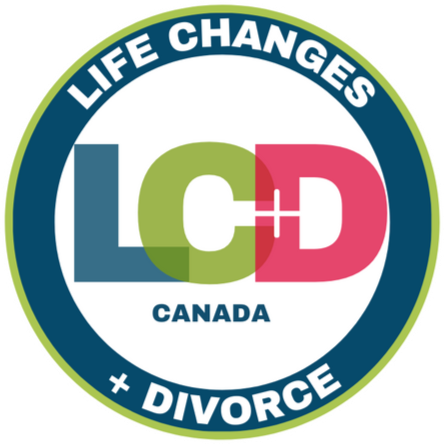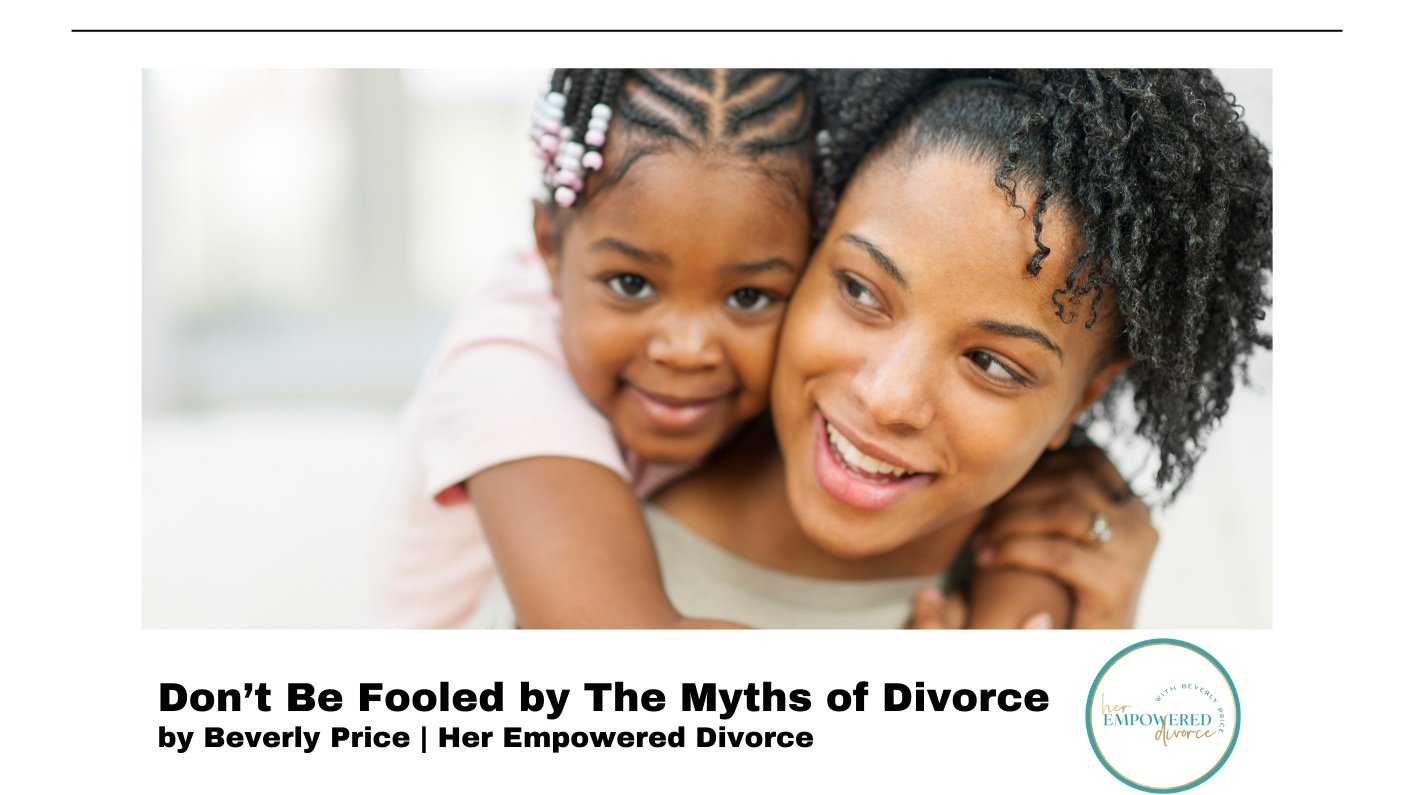Don’t Be Fooled by the Myths of Divorce
The thought of divorce can be frightening, and proceeding with divorce can be overwhelming.
When I went through my divorce, all I knew were the things I had heard from others. I quickly learned that there is so much mis-information available that I wanted to set the record straight. I’d like to clear up a few facts. I call them the 10 Most Common Divorce Myths:
1. Divorce is Always Controversial
Indeed, divorce is an emotional and painful process, but this doesn't mean it will always be controversial. The controversy only happens when both partners don't agree on a thing such as a child custody, property division, alimony, etc.
However, in most cases (97%), partners decide things and part ways without going to court. In addition, a growing number of couples chose mediation as an option. It's less tumultuous and expensive compared to court that involves hiring attorneys, court hearings, and other proceedings.
So, don’t overthink it.
2. Only Mothers are Entitled to Child Custody
Many assume that if parents are separated, only mothers are entitled to custody of the child. This is nothing but a divorce myth, as the matter of custody is awarded to any parent based on many factors. These include the financial status of both parents, their relationship with the child, and the child's inclination.
If any of both parents come out to be positive in all these factors, they will get custody. Moreover, different states are also changing their custody laws to ensure the decision is rational and not gender biased.
3. Long-Lasting Marriage Means Happiness
While thinking about divorce, many people get advised by their friends and relatives to consider that couples with many years of marriage are living happy life. This is another one of many false divorce myths surrounding the procedure.
According to research, around six out of ten marriages are unhappy, which means people in long-lasting marriages aren't completely happy either. Only a fraction of these people goes towards divorce, while others prefer to stay in an unhappy relationship forever. So, associating happiness with long-lasting marriage is an absurd claim.
4. Having a Child Can Make Things Better
Another of the many divorce myths is that if a couple has a child, things can get better. Having a child comes with immense responsibility, increasing the emotional pressure on parents.
The parents' living style completely changes, and they must give all their attention to their kid's care. So, saying that a child can solve the issues between a couple isn't true. The child will not solve it but rather put more pressure on both parents.
So, if someone is saying distracting you, that a newborn would have saved your relationship, this is nothing but a big wrong. Don’t burden yourself.
5. Marital Estate or Assets Gets Split Equally
One of the most common divorce myths is that the marital estate or assets will get equally divided between both partners. However, it's not true, as a judge will look into this matter and give the final verdict based on a few things. The most prominent in this case is the financial standing of both partners and their ability to provide for themselves after the split.
For instance, if a spouse earns well, they will get the marital home because they can afford to pay the mortgages. In contrast, if a spouse has low earning potential, they will get spousal support. The assets division may not be equal, but it'll be fair for both.
6. You Can Handle Everything By Yourself
A huge misconception about divorce is that you can handle everything and don't need any support. You may want to prove it right, but there are many reasons why you can't. In the case of a contentious marriage, you need lawyers and judicial help to sort out matters. On the other hand, if it's an uncontested marriage, you need counseling and support from your loved ones to get over the whole divorce procedure. In both cases, you need an expert to help you navigate all the complexity.
7. Divorced People Can't Grieve
People are too quick judge a divorced couple, saying they should not grieve over their separation as they decided it themselves. These words are just another of the divorce myths and don't hold any value. If you have gone through a separation, it's your right to grieve and show emotions. Undoubtedly, divorce is a tough time in everyone’s life. It is a death; you do need to grieve.
In this crucial time, the help of friends, family, and coaches matters the most. You should be open for help and focus on your mental health to gear up for your next journey.
8. Children Can Select Who They Want to Live With
It's among the very common divorce myths that children can select who they want to live with between their parents. The minor children don't have the right to make this sensitive decision, and the parents can decide in mediation. In court, the judge decides what's best for them. Factors like a child's stability, safety, and health are considered while making this decision.
Children’s preferences are always considered by the judiciary, but the child isn’t the decision maker here.
9. Only Women Receive Spousal Support
This may be valid a few decades ago when women could not work in a male-dominated society, but now it's another one from the common divorce myths. Now both spouses work hard and earn an income to support their family.
This means women aren't the only ones entitled to spousal support. The spousal support is given to the spouse who's facing a bit of a financial crisis and doesn't have a very stable job.
10. Seeking Divorce is Disgraceful
We often hear people commenting that divorce is a disgrace, and this comment is mostly thrown at women seeking a divorce. Getting a divorce isn't disgraceful or mean, as everyone has the right to decide what's best for their mental and emotional health. If your chemistry isn’t matching with your partner, there’s no shame in partying ways. Living alone is always better than surviving in a toxic environment.
12. My friend can give me all the advice I need. She’s been divorced.
No two divorces are alike. Friends and family can give you good intentioned advice, but it can be totally wrong for your situation. The experts needed, the process you decide to use, your financial and marital situation, the reasons for your divorce, etc, all require different things. This is one of the most critical times of your like. Don’t skimp – deal with experts. You’ll be glad you did.
11. I Don’t Need A Divorce Team; I Don’t Have the Money
Many women have been raised to take care of family, friends and community – and that leaves nothing ourselves. Similarly, we invest in everyone, but not in ourselves. Divorce is not the time to do that. There is a substantial number of experts to form your divorce team. With experts in divorce law, mediation, conflict resolution, negotiation, financial analysis and planning, real estate, and divorce specific mortgage lending, you can select the specialists you need. Rather than say “I can’t afford it,” it is really “I cannot afford not to.”
Conclusion
Getting divorced and fighting myths surrounding it is a challenging time for everyone. Don’t listen to just anyone or turn to the latest information on the internet. Your situation is unique, you deserve help from an expert. If you’re going through this difficult phase, I’m here to help you get through it.
If you’ve like to learn more about me and what Divorce Coach can do for you, you can go to my website www.herempowereddivorce.com and pick a time to talk with me. I’ll walk you through the whole process of taking charge of your divorce and your life! You’re only one click away from someone who will be in your corner.
Divorce doesn’t have to be the end; it can be a beginning to a new life. Look forward to your future.
Meet the author Beverly Price
Beverly Price, of Her Empowered Divorce, has helped thousands of women navigate the complex journey of divorce. Through increasing her client’s knowledge, skills and support, her clients can be informed and prepared participants for the most successful divorce process possible. Her one-on-one coaching process includes extensive preparation, legal and financial education, emotional management, communication and negotiation skills, empowerment and support.
While Beverly is not an attorney, therapist or financial professional, she herself has 30 years of divorce coaching experience and a personal history with co-parenting, domestic violence, multiple divorces, single working motherhood and more.
Learn more and connect with Beverly:
Website: herempowereddivorce.com
Instagram: @her_empowered_divorce
LinkedIn: Beverly Price
Facebook: Her Empowered Divorce
Note: The author, compiler and publisher do not assume and hereby disclaim any liability to any party due to these words coming from the author’s own opinion based on their experiences. This account is based on the author’s own personal experience. We assume no responsibility for errors or omissions in these articles.


